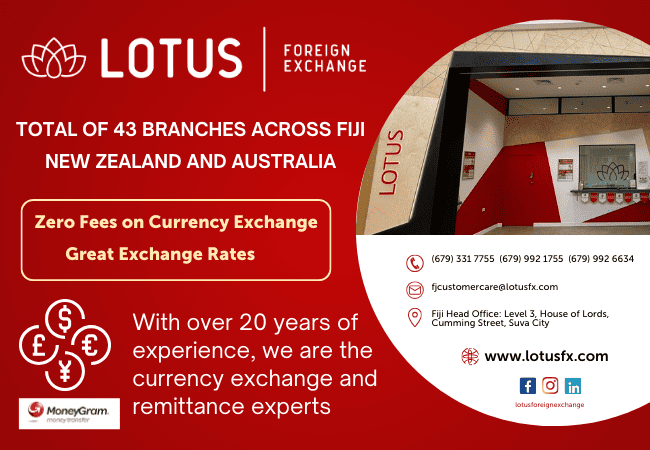A family affair
Words: Ariela Zibiah Photos: Lisa Kingsberry
As an indigenous woman who has clocked considerable hours diving in some of the most breathtaking locations around Fiji, the emotions I felt while being kitted up and taken out to a slice of the magnificent Vatu-i-Ra passage by a local, family-owned and run dive operator recently was indescribable.
Resorts are king in this segment of the tourism sector and they usually feature an expatriate in charge of a dive operation, supported by local dive masters. So watching Jioji Mataitoga and Alisi Maiyacata organise our bottles and wetsuits, our fins and buoyancy control devices, and then ensure at Malake Jetty that we were comfortable in the boat, I felt a sense of pride and accomplishment for this family. I hadn’t even dipped my toe into the deep blue waters off the Rakiraki coastline and my heart was already full; this was ‘Bula spirit’ at its best.
How it all started
Jioji was a 19-year-old doing odd jobs at a local hotel in Taveuni in the 1980s when he first saw a scuba diving pool session. As a free diver used to diving for family meals, he was intrigued by all the gadgets. In fact he was so fixated at the sight of all the gear, that he did not hear the dive operator approach. The ensuing conversation marked the beginning of a love affair with diving that continues today for Jioji.
His family company, Ring Gold Divers, began operations in 2016.
“We had years of experience between us doing the same things we are doing now for other people. Now though we were doing it for ourselves. We just went for it but then (Tropical Cyclone) Winston came, and then Covid-19, but we persevered,” Jioji said.
Cyclone Winston, a Category 5 storm, made landfall in Ra on February 20, 2016. The cyclone killed 44 people and left 131,000 people homeless. Jioji’s family survived with minimal damage to their home. However the Rakiraki Hotel, where Ring Gold Divers hoped to have their divers’ stay, had to be shut down.
Jioji and Alisi’s next move should not surprise; the idea that they also run an Airbnb was birthed by an Australian -based niece who pointed out the three vacant rooms they now had with their older children having flown the nest. The rest, as they say, is history!
By the time Covid-19 slipped through our airports in March 2021, the family had had a taste of what Ring Gold Divers could become. Direct local bookings helped a lot. “It has been our faith and belief in ourselves that’s brought us through the difficult days. A whole lot of survival has been about the relationships we had in the area,” Jioji said.
A genuinely warm appreciation for each other comes through their exchanges, and the warmth with which you are welcomed at their table and invited into their lives, belies the difficulties they have been through.
More than just diving
The philosophy of Ring Gold Divers reminds me of the idiom “culture eats strategy for breakfast”; Jioji speaks to his “boys” regularly about respect and developing their knowledge of the area. As women divers, we were treated with respect, our experience in diving acknowledged and as locals, we did not feel we were being treated any different from how they’d treat international visitors.
The cleanliness of the dive shop with neatly hung buoyancy control devices (BCDs), indicated the care with which the tools of their trade are kept and maintained. The professional manner with which our details were noted, circling back to ensure we felt good in our gear, was reassuring.
“Everyone can dive but knowing your responsibility is what places you apart from everyone. Having local knowledge both about the dive sites but also just our heritage generally-speaking, are all important areas for us,” Jioji said.
“I have seen the impact of divers below water. It’s just like when we use a new path, when we keep using it, it becomes clearer as a footpath. Same thing we see in the ocean. That’s why I emphasise the need to tread in our waters carefully, and why heritage, our legacy is important to us as a family. This is much more than just diving,” Jioji said.
The dive sites are part of the Vatu-i-Ra Conservation Park which was established in 2017, some 110 square kilometres in size. The area is traditionally owned by, and is the fishing grounds or qoliqoli of, the vanua Nakorotubu. For declaring 80 per cent of their qoliqoli a “no take” zone, tourism operators have agreed to collect $15 per client, which funds the Nakorotubu Education Fund for tertiary students.
Once below the water, the pinnacles are majestic. To gaze upwards as you weave between them gives you a sense of walking inside age-old European churches; their knurly outcrops giving gothic vibes. Images speak best of the vibrancy of both life and colours of the coral system of this passage. Suffice to say, the living wall we witnessed – the millions of fish darting between hard corals or dancing through soft polyps, the clusters of algae and sponges, the huge green sea fans and gorgeous swim throughs, giant clams and rock fish – are memories we will hold forever.
The weight of our collective responsibility of protecting these bays and its coral systems feels heavier after every dive. While commendable, projects like the Vatu-i-Ra Conservation Park underline the need to ensure agreements that resources owners enter, are honoured. Our capacity to effectively monitor these no-catch zones must be strengthened. Hefty fines that paralyse illegal fishing operations are needed.
Fantasha Lockington, Chief Executive Officer of the Fiji Hotel and Tourism Association, recently articulated what needs to be our collective vision: “It should not be about increasing the numbers of visitors to our shores. It should be more about driving the value of tourism up – offering genuine experiences that encourage longer stays, spreads the tourism dollar further into the communities, and allows activities that have positive outcomes on cultures, environments, and socio-economic triggers.”
The experience that Jioji and Alisi offer through Ring Gold Divers is a great example of this vision.
Ring Gold Divers
Ph: +679 831 7365
This article first appeared in Fiji Traveller, January-March 2023.

